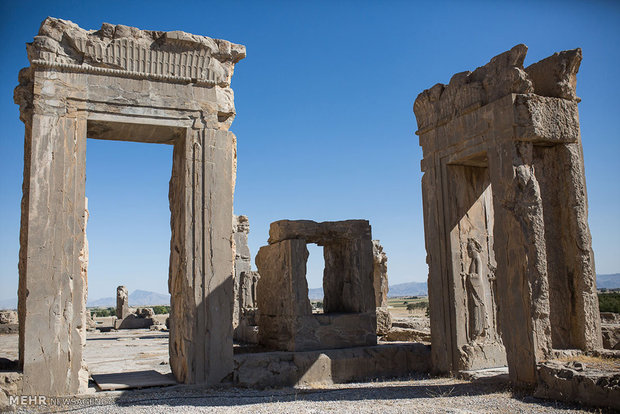Fars provincial Cultural Heritage Organization told reporters on Monday that lichens growing on the monuments had been a source of concern for lovers of the historic monuments and archaeologists alike; “lichens are masses of symbiotic union of algae and fungi which grow mainly on rocky surfaces; they gradually feed on the rocks, ripping apart them in the natural contours of formation, thus rendering the monuments decomposing in the long run,” Siamak Basiri told Mehr News local correspondent.
“The nature of rocks the Persepolis made of makes the lichens growth inevitable; the sedimentary rocks are easily decomposed physically by weathering, and they are prone to many natural effects; however, the Cultural Heritage Organization had taken measures to alleviate wearing process by the lichen; drought has already exacerbated the process of weathering with rocks gradually undergoing metamorphosis,” Basiri said.
He lamented that the unregulated deep water welling in the region had contributed to the general drought and land subsidence which affected the lands in the vicinity of the Persepolis remains; “the underground water levels have severely been down; inefficient agricultural practices and traditional irrigation is the major source of wasting valuable water away, which the government should address,” he said.
“Authorities have banned issuing permits for new deep water wells, but the damage had already been done to the region,’ Basiri added.
In a related story, Masoud Rezaei Monfared, head of the Marvdasht Cultural Heritage and Tourism Department and Pasargad Parseh Research Foundation told reporters that the Organization would invite Spanish and Italian scientists to establish Persepolis Lichen Studies Center to examine different species of lichen and possible methods to remove the organisms from Persepolis surface, along with monitoring possible impacts of industrial pollution on monument.
SH/3905685

























Your Comment